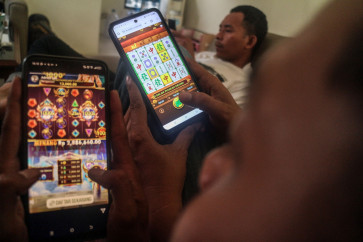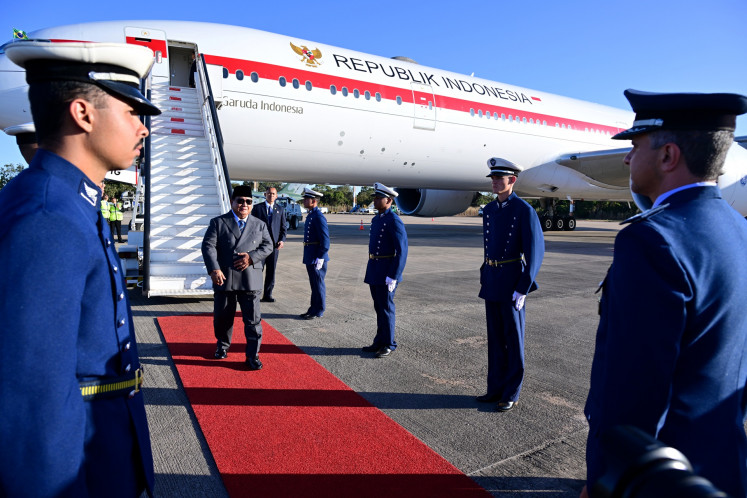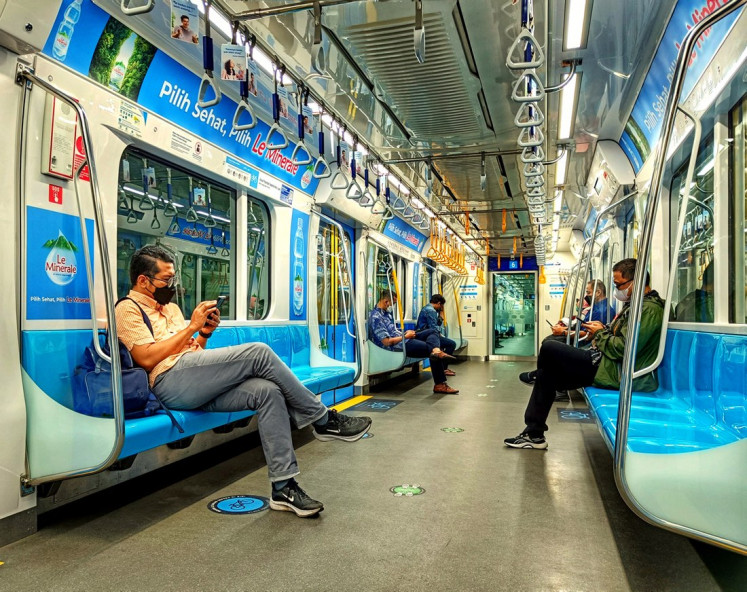Popular Reads
Top Results
Can't find what you're looking for?
View all search resultsPopular Reads
Top Results
Can't find what you're looking for?
View all search resultsIndex unveils sluggish journey in graft battle
Indonesia’s antigraft drive has been lethargic at best over the past year, according to Transparency International’s latest Corruption Perception Index (CPI) 2011 released on Thursday
Change text size
Gift Premium Articles
to Anyone
I
ndonesia’s antigraft drive has been lethargic at best over the past year, according to Transparency International’s latest Corruption Perception Index (CPI) 2011 released on Thursday.
Transparency International Indonesia (TII) secretary-general Teten Masduki labeled the change that Indonesia had smade as insignificant and meaningless.
“We [TI] only acknowledge there is progress in the index if the score changes to above 0.3,” he said.
The country’s rank has risen to 100 out of 183 countries, from 110 last year, it scored 3.0 out of 10, while in 2010 it gained 2.8.
The CPI perceives 10 as the cleanest score and 0 as the most corrupt.
Teten pointed out that if Indonesia really wanted to improve its CPI index, then anticorruption efforts should be focused on wiping out bribery practices in the business sector, as well as in tax and customs, by empowering law enforcement agencies to hand down heavy sentences especially in political and judicial mafia related corruption cases.
“From my perspective, the Corruption Eradication Commission [KPK] should arrest more prosecutors, police officers and judges involved in corruption if it intends to raise the index score,” Teten said.
Indonesia has targeted to improve its CPI score to 5.0 by 2014.
TII chairwoman Natalia Soebagjo said that the country should work very hard to achieve the target, especially given the recent sluggish progress.
In 2010, Indonesia was also judged to have made no improvements, as it received the same score of 2.8 as it did in 2009.
Last year, the discord between the KPK and the police hampered the nation’s anticorruption agendas, while this year the anticorruption body is facing new opposition.
KPK research and development body director Doni Muhardiansyah told reporters on Thursday that now not only public officials were corrupt, but businessmen and politicians too.
He added that corruption was also lurking at the Supreme Court, Supreme Audit Agency and Finance Ministry.
He added that the KPK had been bullied by political interests, and hampered by limited resources.
“First, our [KPK] resources were limited, then we were also bullied, for example our budget always was always out of kilter with the other institutions. We always faced strong resistance [from the House] in every policy that we made,” he said.
Doni said that to overcome the challenge, the KPK had been forced to be selective in the cases it chose to investigate. In 2011, the KPK probed high profile corruption cases in several ministries, including the Manpower and Transmigration Ministry and the Youth and Sports Ministry.
Throughout the year, the KPK faced resistance from the House of Representatives, which is perceived as the nation’s most corrupt institution. (rpt)










